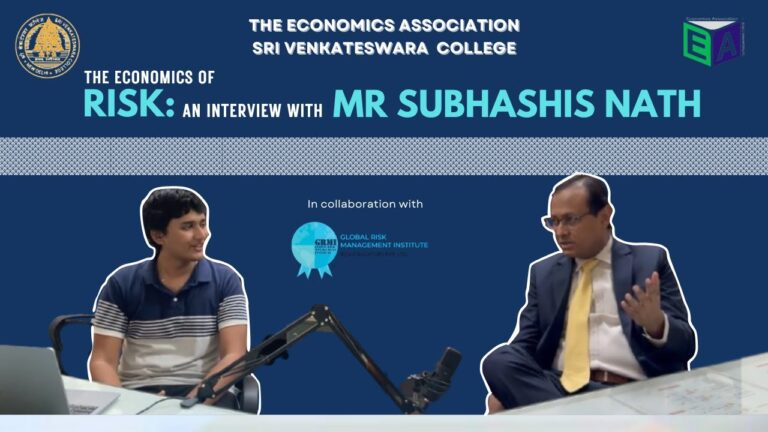
How to Apply for a Post Graduate Degree Programme in India
How to Apply for a Post Graduate Degree Programme in India
A postgraduate degree in India is a major step towards building a secure and future-focused career. A PG degree strengthens academic knowledge and also improves employability and professional growth.
Recent data shows that more than 65% of Indian employers now prefer candidates with a postgraduate qualification, especially in management, finance, analytics, and risk.
Today’s job market is competitive and unpredictable. Automation, economic shifts, and new regulations have increased the demand for skilled professionals who understand modern business risks and industry needs.
A NASSCOM report states that India will need nearly two million specialised professionals by 2026 in areas such as risk, finance, analytics, operations, and cybersecurity.
Risk-related roles have grown rapidly. According to the World Economic Forum, global risks such as cyber threats, regulatory changes, and financial instability have increased sharply, pushing companies to hire trained risk managers at a faster pace than before.
A recent example came from a YouTube interview with Subhashis Nath, Founder and Dean of GRMI. He explained how one organisation reduced major financial losses after creating a trained internal risk team. This real case study highlighted the value of structured postgraduate programmes in building business-ready skills.
You can watch the full conversation in the link given below:
The wide range of specialisations in management, technology, finance, and risk provides many opportunities for students to match their education with their long-term goals.
As an Indian graduate or an employee seeking a career upgrade, you can make correct decisions by understanding the complete process of applying to a post graduate degree course in India.
Step 1: Find Your Career Objectives
You need clear career objectives before applying to a postgraduate programme. A pg degree offers expertise in a selected field, so your choice should match your long-term goals.
For example, if you want deeper knowledge of business risks, financial systems, or corporate strategy, a specialised Post Graduate Diploma like the PGDRM (Post Graduate Diploma in Risk Management) is a suitable choice.
Understanding your goals early helps you select the right programme and build a planned career path.
Step 2: Investigate the Appropriate Institutes
Once you know your goals, the next step is selecting a reliable institution. India has many universities and institutes offering strong postgraduate programmes.
GRMI (Global Risk Management Institute), is one such institute. Its industry-focused curriculum offers one of the strongest learning experiences in India.
GRMI helps students combine academic excellence with real corporate exposure. This makes them suitable for students who want strong analytical, managerial, and risk assessment skills.
Why Choose GRMI?
Effective Alumni Network:
GRMI graduates are part of a strong network across industries. Alumni offer career guidance, mentorship, and support.
Established Academic History:
Both institutes maintain academic excellence and offer programmes that balance principles and practical applications.
Industry Collaboration Hub:
Their partnerships bridge the gap between theory and current industry needs. Students receive real exposure to industry mentors, case discussions, and hands-on projects.
Culture of Innovation and Entrepreneurship:
Both institutes promote problem-solving, innovation, and entrepreneurial thinking, allowing students to create meaningful impact in their chosen fields.
This collaboration makes GRMI top choices for students aiming to build expertise in risk management and business leadership.
Step 3: Get to Know the Eligibility Criteria
Eligibility requirements vary from course to course, but most pg degree programmes in India follow similar principles:
- Educational Qualification: A recognised bachelor’s degree in any discipline.
- Minimum Marks: Many institutes expect at least 50% aggregate marks.
- Entrance Tests: Some courses require tests like CAT, GMAT, or institute-specific exams.
- Work Experience (Optional): Programmes such as the PGDRM accept both fresh graduates and working professionals.
Applicants must check the official websites of selected institutes to confirm exact requirements.
Step 4: Application Process
The postgraduate application process usually includes these steps:
- Visit the Official Website:
Open the site of the institute you prefer, such as GRMI. - Select Your Programme:
Choose the postgraduate course that fits your goals, such as the PGDRM. - Fill the Application Form:
Enter accurate academic, personal, and professional details. - Upload Required Documents:
Submit scanned certificates, mark sheets, photos, and ID proof. - Pay the Application Fee:
Complete the payment as instructed on the website. - Attend Entrance Test or Interview:
If required, appear for assessments or interviews. - Wait for Selection:
Selected candidates receive updates through email or the admission portal.
Once selected, students complete the enrolment process, pay fees, and verify documents.
Step 5: Selecting the Most Desirable Postgraduate Course
Selecting the best postgraduate course depends on your interests and goals.
Some students prefer master’s degrees, while others choose PG Diplomas, which focus more on industry skills.
A diploma such as the PGDRM prepares students to manage business risks. It includes modules on financial analysis, strategic risk, governance, and regulatory frameworks. This makes it a strong option for graduates aiming to build careers in financial services, consulting, corporate strategy, or risk functions.
Step 6: Prepare Financially
A postgraduate degree is an investment in your future. Many institutes provide scholarships, merit-based rewards, and financial assistance.
GRMI also offers financial support, making education more inclusive and accessible.
Step 7: Develop Your Network and Work Skills
A postgraduate programme helps you join a strong professional network. Attend seminars, workshops, panel discussions, and networking sessions.
Build relationships with faculty, industry speakers, and alumni to learn about new trends and opportunities.
Students at GRMI also learn leadership, teamwork, and problem-solving, which are essential in today’s business world.
Final Thoughts
Pursuing a postgraduate degree in India requires planning, clarity, and commitment. Selecting the right institution is the key. GRMI offers strong academic value, industry exposure, and innovative learning.
They help students grow into skilled leaders, strategic thinkers, and changemakers across industries.
A PG qualification, especially from a collaborative and industry-oriented institution like GRMI, allows you to specialise, grow, and lead. With the right education, your postgraduate journey could be your launchpad to meaningful, high-impact careers.
FAQ’s
Q1. What is a postgraduate degree?
Ans. A postgraduate degree is an academic qualification you pursue after completing a bachelor’s degree. It helps you gain specialised knowledge and skills.
Q2. What is the difference between a master’s degree and a PG Diploma?
Ans. A pg diploma focuses on practical skills and industry training. A master’s degree focuses more on academic theory and research. Both support career growth in different ways.
Q3. What are the eligibility requirements for joining a postgraduate programme?
Ans. You usually need a recognised bachelor’s degree with at least 50% marks.
Some programmes may require entrance tests or interviews.
For any queries please fill the form
What Is the Eligibility for Doing a Risk Management Course in India?
You may also like

Silver Price Today 25 Feb 2026 – Risk Insights & Market Trends

India Faces 15% US Tariffs After Supreme Court Ruling



